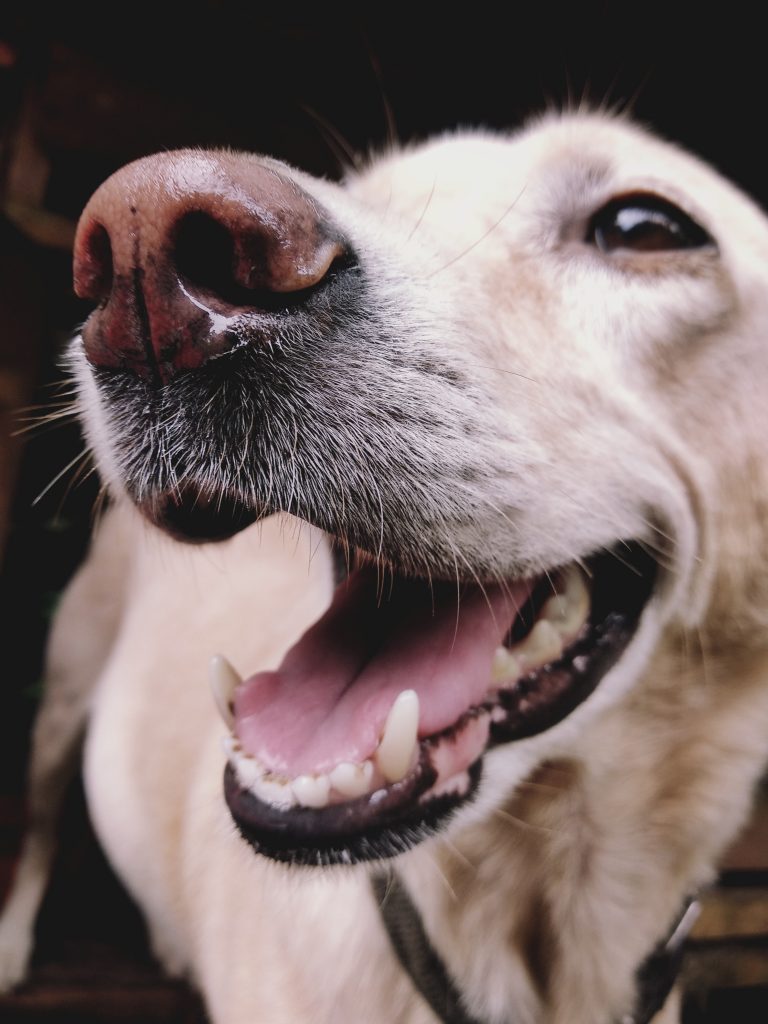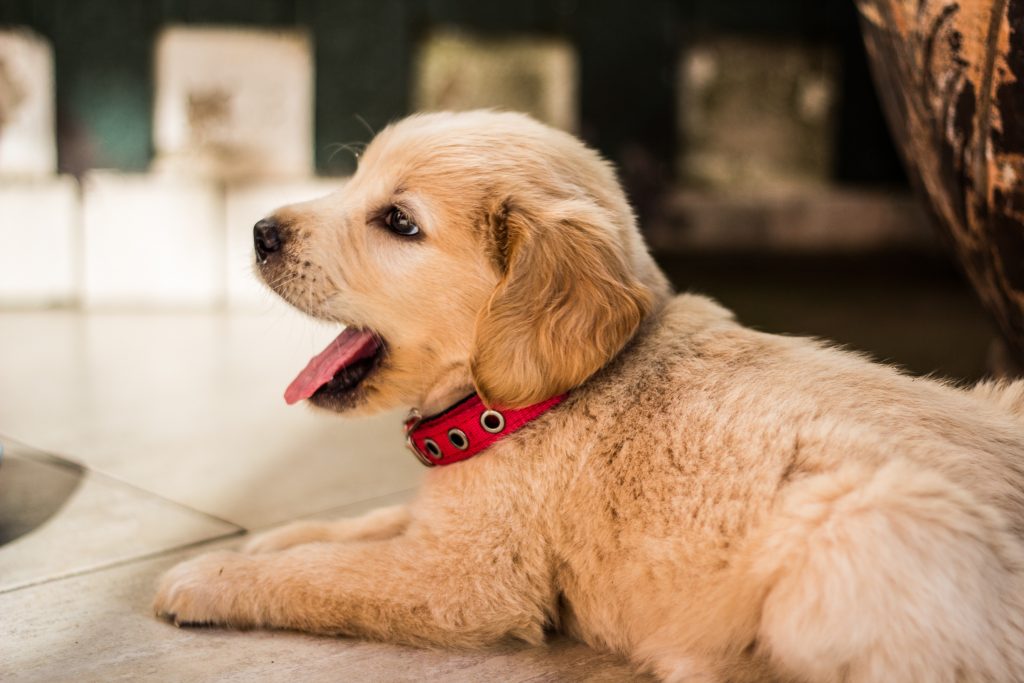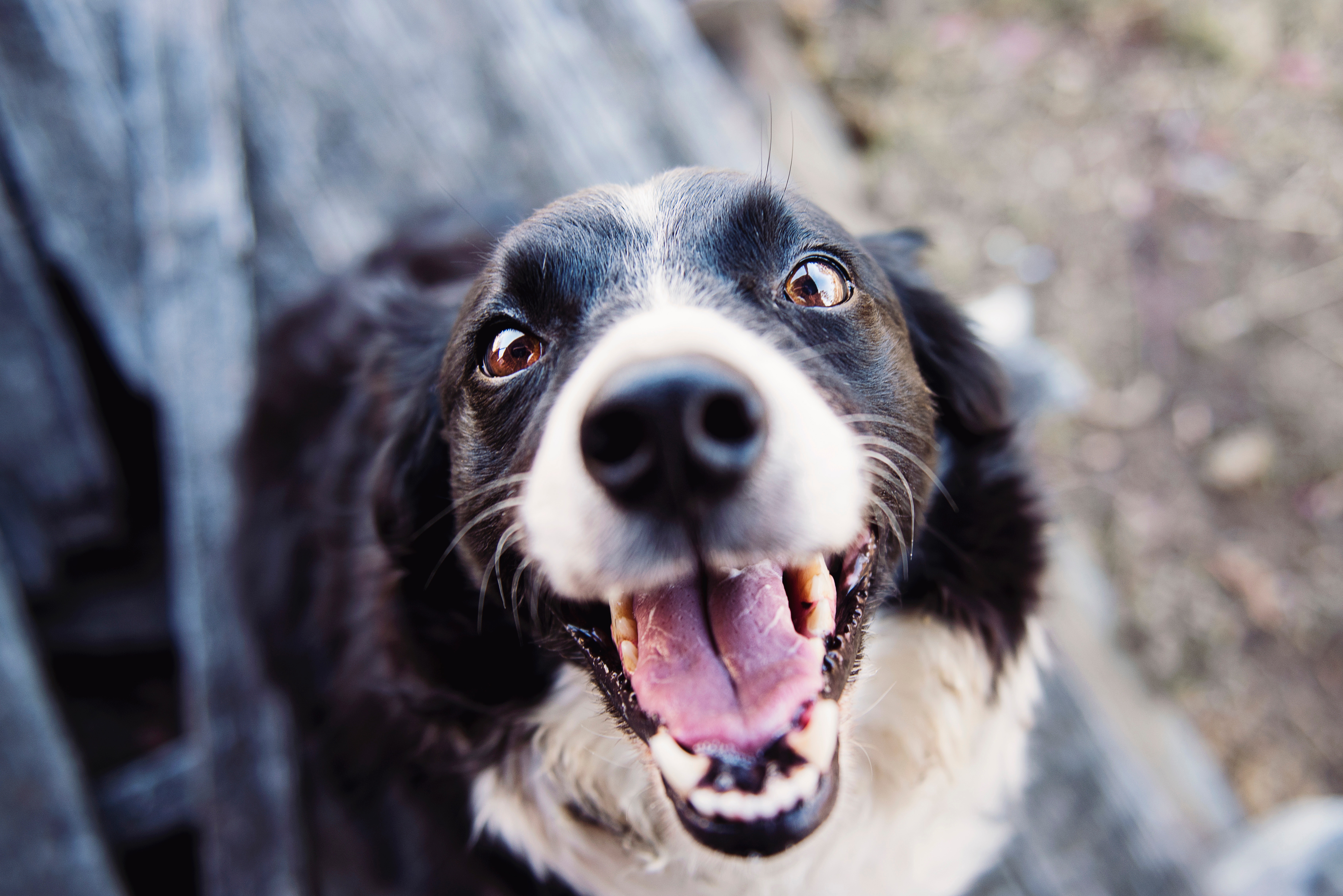Throughout the years, dogs grow their teeth ; starting from when they are puppies until they become adult dogs. But when do dogs stop teething? and what’s the process like?
Continue reading if you want answers to these questions and much more.
Table of Contents
How many teeth does a dog have?
While they are a puppy, they have 28 baby teeth. They are divided into:
- 12 incisors: These are the teeth that are at the upper and lower jaw. There are 6 at the bottom and 6 located at the top of the jaw.
- 4 canines: These are long pointed teeth located on either side of the upper and lower jaw.
- 12 premolars: They are located further back of the puppy’s mouth and are last to grow. There are 6 on the upper jaw and the other 6 on the lower jaw.
When a puppy grows into a full grown dog, they have about 42 teeth. They have:
- 12 incisors: 6 on the bottom and the other 6 at the top of the jaw.
- 4 canines: 2 at the bottom and the other 2 at the top of the jaw. They are right behind the incisors.
- 16 premolars: The premolars are located behind the canines, at the side of the jaw. Mainly used for chewing, the premolars are strong teeth. 8 are located at the top of the jaw and the other eight are in the bottom.
- 10 molars: Molars are located behind the premolars. There are 4 located at the top of the mouth and the other 6 at the bottom of the mouth.
When do dogs start teething?

Dogs start teething when they are puppies. Their teeth begins to grow at 2 to 4 weeks of age and continue growing at a 5 to 6 weeks of age. However, there are dogs begin teething when they are eight weeks old.
Their set of baby teeth is completed at the age of 8 to 10 weeks. There are about 28 baby teeth for puppies when they first start out growing them.
Stages of dog teething
As mentioned, first, your dog develops their first teeth and baby teeth when they are a puppy. Puppy teething is very painful so your puppy will chew and bite into things such as shoes to relieve the pressure and how they are feeling.
Second, how long do puppies teeth last is connected to the timing in the teething process. At just weeks 12 to 16 ( 3 to 4 months), your puppy loses their first set of teeth. The process starts with losing the incisors and usually ending with the canines.
Third, all puppy baby teeth will fall and your puppy starts to grow their adult molars starting at 4 months. You should check with a vet to know how many baby teeth are left.
Fourth, at 6 months your puppy will have all of their adult teeth set. Some teeth may grow crooked and require to be corrected. By correcting your dog’s teeth, you ensure that they grow without further damage.
Fifth, from six months to upward, your dog teeth all adult teeth have grown in. Let your vet know if there are any baby teeth remaining.
When do dogs stop teething?
Here is a timeline of a dog’s growing of teeth and when do dogs stop teething.
how long do puppies teeth?
- 2 to 3 weeks: incisors come in.
- 3 to 5 weeks: canines emerge.
- 5 to 6 weeks: premolars come in.
By the 8th week of age, a puppy has a full set of baby teeth.
how long do dogs teeth last?
- Weeks 12 to 16, the adult incisors start coming in. The canines also come too.
- Weeks 16 to 20: premolars start coming in.
- Weeks 16 to 24: molars start to come in.
By 5 to 6 months of age, all of your dog has a set of full adult teeth.
Symptoms of puppy teething

Bleeding or swelling of gums
Bleeding happens at the minimum; only a few drops of blood may be seen from on your dog’s favorite toys or on their mouth.
Chewing
Your puppy will chew on your belongings such as shoes and furniture. Your puppy will chew on anything within their reach. They chew on things because it relieves pressure and pain from the teeth.
Drooling
You may notice your dog excessive drooling which signals the formation of teeth. If you don’t see the actual saliva, you will notice wetness over their face or where they sleep.
Loss of appetite
Some puppies refuse to eat and lose their appetite. The reason is that eating causes them so much pain.
Conclusion
In conclusion, dogs do change their teeth throughout their life. There are timings for the growth of dog’s teeth. When do dogs stop teething depends what time and stage your dog’s teeth are in.
To know more about how often to brush your dog’s teeth, check How Often to Brush Dogs Teeth: What to Do.

